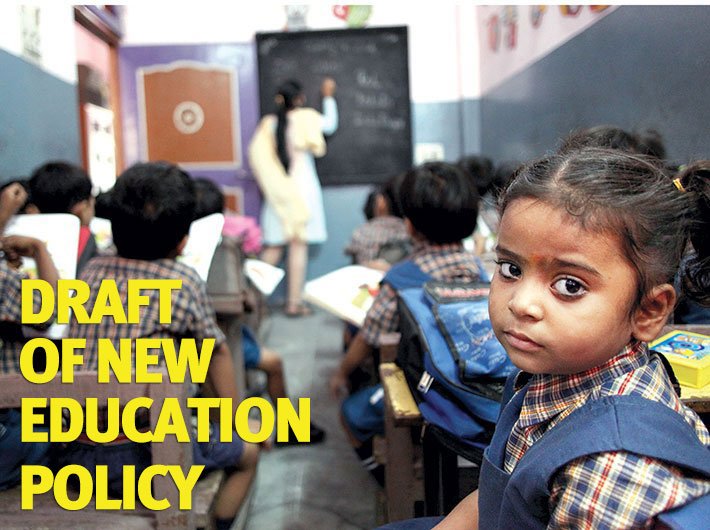The New Education Policy draft, submitted to the HRD ministry last month, has recommended following changes in the teacher management system:
- The centre and state should jointly formulate transparent and merit based norms and guidelines for recruitment of teachers, principals and other academic cadre.
- The recruitment would only be done through independent teacher recruitment commissions.
- Teachers should be made accountable for their performance.
- The reward and punishment structure of teachers needs to be closely linked to continuous assessment of student performance and teacher evaluation.
- For existing teachers, compulsory training every five years should be the norm.
- Compulsory licensing or certification for teachers in government and private schools should be made mandatory, with provision for renewal every 10 years.
- ICT must be made an integral part of school education. Courses on the use of ICT as an aid for enhancing the teaching-learning process should be made a part of the curricula of teachers’ training colleges.
Reforming and strengthening national level institutions (AICTE, NCERT, NUEPA and UGC)
- The mandates of UGC and AICTE, set up under different laws, should be reviewed in the light of the proposed national higher education promotion and management Act.
- NCERT needs to focus sharply on increasing the quality of school education.
- It should redesign its text books in a manner that teachers become facilitators and co-investigators and encourage self and peer learning.
- There should be peer reviews and periodical external reviews of the work of NUEPA.
- When the new overarching higher education management law is enacted, the UGC Act should be allowed to lapse.
- Standing Education Commission: The ministry of HRD requires the assistance of a high-quality think tank in the form of a standing education commission to study emerging challenges, evaluate and interpret policies and programmes, and provide information and guidance to the ministry from time to time.
"Reduce curriculum load, rote learning"
- There is a need to reduce curriculum load and avoidable emphasis on rote learning.
- A complete overhaul of examination system which primarily tests only rote memory.
- The performance of a student should not be judged only by results of the board examinations.
- The alternate method of using scaled scores and percentiles should be introduced.
- Assessment capacities in CBSE and state examination boards need to be strengthened.
- Class 10 board examination in Mathematics and Science should be in two levels: Part A at higher level and Part B at lower level. Students who wish to complete their studies at Class 10 need, by choice, to appear in Part B only.
Higher education (universities)
- The process of selection and appointment of vice chancellor should be depoliticised and done purely on merit.
- Accreditation should be made mandatory for all institutions of higher education, including technical education, medicines and agriculture, both in public and private sectors.
- It should be mandatory for teachers to attend training programmes in teaching and communication skills.
- The top performers (in class 12) could be offered scholarships for 5-year integrated course leading to specialisation in specific subjects to ensure they enter the profession.
- The regulatory regime for higher education should have the capacity, sensitivity, objectivity and discrimination to deal with different categories of institutions of different quality.
- A National Fellowship Fund, designed to support the tuition fees, learning material and living expenses for about 10 lakh students every year should be created.
- Restrict political and other distractions on university and college campuses. Educational institutions should not be allowed to become political arenas to settle national rivalries.
- It is essential to find right balance between free speech and freedom of association guaranteed by the constitution, with the primary purpose for which the universities have been established to enable the pursuit of education.
- To restrict the period of stay of students on campuses, there should be a national debate on the need for the students to necessarily achieve the minimum benchmarks for scholastic progress to prevent the misuse of educational facilities (hostel and fellowships) established at public expense.
Read more: New Policy draft favours granting right to education to toddlers
No detention till Class 5, says new draft policy on education 2016
Also read: TSR Subramanian, former cabinet secreatry's interview on new education policy draft

